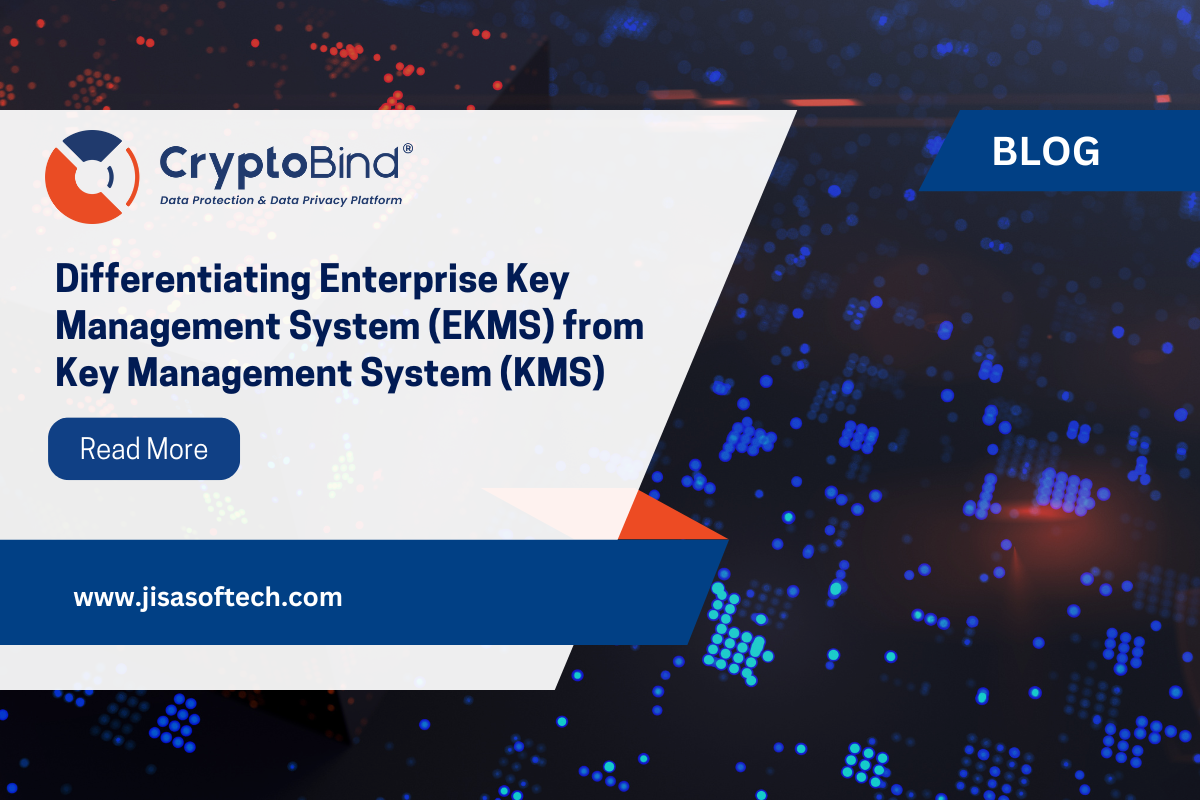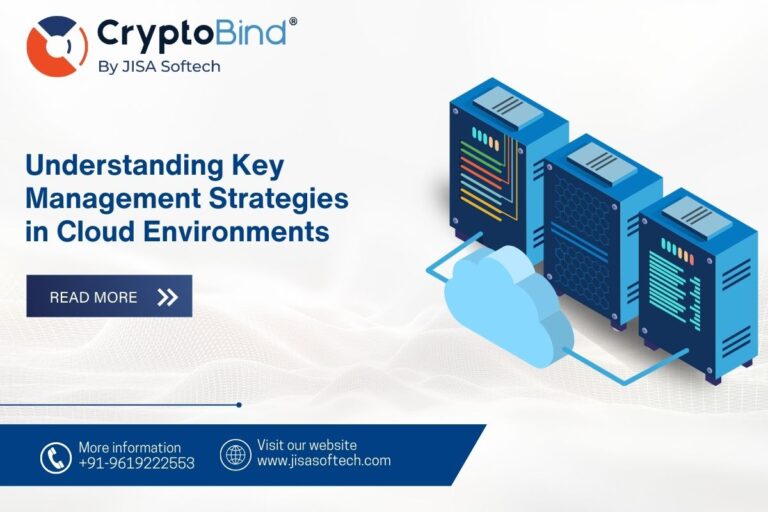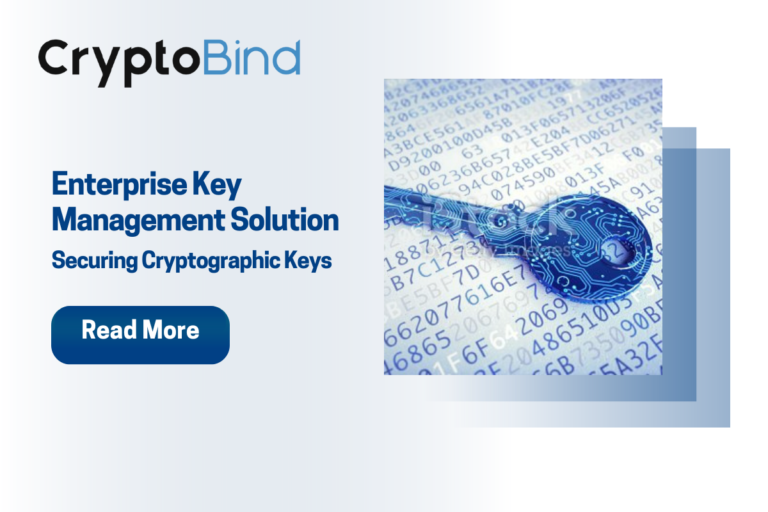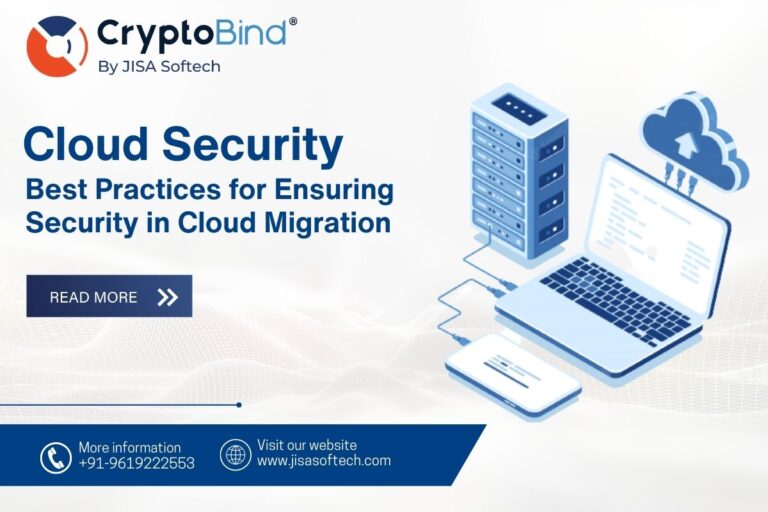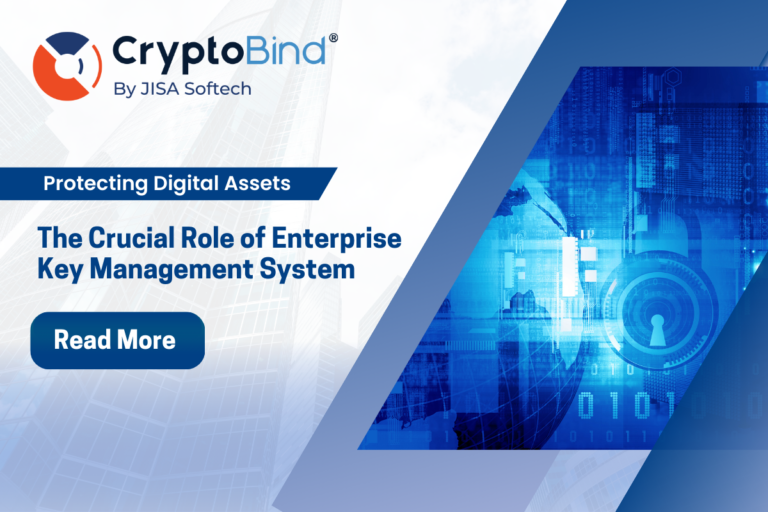Differentiating Enterprise Key Management System (EKMS) from Key Management System (KMS)
In today’s data-driven world, encryption serves as the backbone of security, safeguarding sensitive information across industries. At the heart of effective encryption lies robust key management, which ensures encryption keys are securely generated, stored, and distributed. While Key Management Systems (KMS) and Enterprise Key Management Systems (EKMS) are often discussed interchangeably, they cater to distinct requirements. Understanding their differences is crucial for organizations to implement the right solution tailored to their needs.
What is a Key Management System (KMS)?
A KMS is a system designed to handle cryptographic keys for specific applications or services. It centralizes the processes of key generation, storage, rotation, and revocation, ensuring the confidentiality and integrity of sensitive data.
Key Features of KMS:
- Application-Specific: KMS is typically tailored to manage encryption keys for a particular service or application.
- Simplified Integration: It integrates directly with the service it supports, such as a cloud platform, database, or messaging app.
- Regulatory Compliance: KMS helps organizations meet security standards like GDPR or HIPAA by safeguarding key usage.
Example Use Cases:
- A healthcare provider using KMS to secure patient data stored in electronic medical records (EMRs).
- A financial institution employing KMS to manage encryption keys for online banking transactions.
Limitations of KMS:
While effective for its specific scope, KMS is less suited for managing keys across diverse environments or large-scale organizational infrastructures. Its focus on individual applications restricts its adaptability and scalability.
What is an Enterprise Key Management System (EKMS)?
An EKMS provides centralized control and administration of cryptographic keys across an entire enterprise. It addresses the complexities of managing keys in large organizations operating in multi-application and multi-location environments.
Key Features of EKMS:
- Centralized Control: EKMS consolidates key management for diverse applications, databases, and systems within a single framework.
- Integration Across Systems: It integrates seamlessly with various third-party systems, cloud platforms, and on-premises applications.
- Enhanced Security: EKMS enforces stringent access controls, multi-factor authentication, and tamper-resistant logging.
- Customizable and Scalable: It adapts to organizational needs, supporting custom encryption algorithms, key policies, and compliance mandates.
- Regulatory Alignment: EKMS ensures adherence to regulations like PCI DSS, ensuring data security across heterogeneous environments.
Example Use Cases:
- A multinational corporation using EKMS to manage encryption keys for securing email communications, cloud storage, and customer databases across global offices.
- A government organization employing EKMS to ensure strict compliance with national data security standards.
Key Differences Between EKMS and KMS

Why Choosing the Right Solution Matters
Organizations often face challenges such as managing a vast number of keys, ensuring compliance with regulations, and protecting keys from internal and external threats. Selecting the Best Enterprise Key Management Software can bridge these gaps, enabling enterprises to safeguard their sensitive data while maintaining operational efficiency.
For example, an EKMS equipped with advanced features can simplify regulatory compliance, streamline key management processes, and provide a robust defense against cyberattacks. This makes it a critical investment for enterprises seeking comprehensive security solutions.
Conclusion
While both KMS and EKMS play crucial roles in data security, the choice between the two depends on the organization’s size, complexity, and specific needs. For single applications or limited use cases, a KMS might suffice. However, for large organizations with diverse systems, the Best Enterprise Key Management Software in the form of an EKMS offers unparalleled flexibility, integration, and security.
In today’s dynamic threat landscape, an EKMS isn’t just a luxury but a necessity for enterprises aiming to protect their data assets and maintain customer trust. Selecting the right solution ensures that organizations remain resilient, compliant, and secure in the face of evolving challenges.
Secure your organization’s sensitive data with CryptoBind Enterprise Key Management System. Simplify key lifecycle management, ensure compliance, and protect against evolving threats—all with a centralized, scalable solution.
Contact us today to learn how CryptoBind can elevate your data security strategy!

